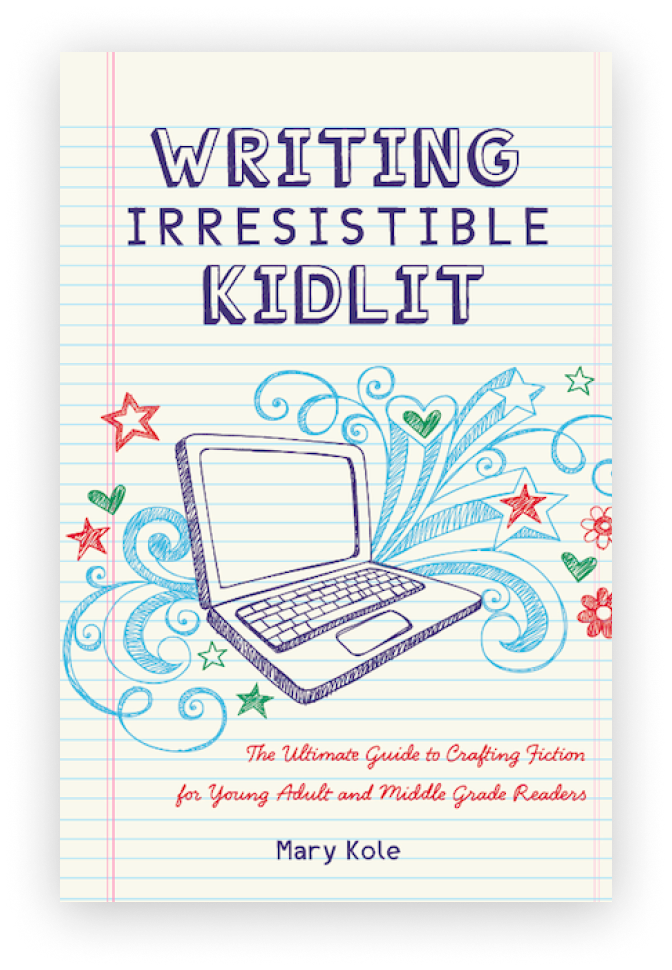Every Piece of Writing Needs Proofreading
By Mary Kole
Mary Kole is a former literary agent, freelance editor, writing teacher, author of Writing Irresistible Kidlit, and IP developer for major publishers, with over a decade in the publishing industry.
For many aspiring writers, the thought of proofreading their own work can be daunting. However, proofreading is an incredibly important aspect of the writing and publishing process. It can help writers catch errors, ensure their grammar and usage are polished, and increase their chances of success in the publishing landscape. But how do you proofread your own creative writing effectively? Or how do you decide to let a freelance proofreader work on your manuscript? In this comprehensive guide, we'll explore the benefits of proofreading your own work, the challenges that come with it, and provide some helpful tips for aspiring writers.
What Is Proofreading?
Proofreading your own creative writing can be beneficial in many ways. Firstly, it can make your writing more polished and professional, especially if you plan on submitting to literary agents or traditional publishers. When you proofread your work, you're able to catch errors, grammar mistakes and typos that may be overlooked during the writing process. Don’t feel bad, mistakes happen in even the most polished manuscripts. That’s why publishing houses have copy editors and proofreaders on staff.
Secondly, it can help you become a better writer overall. By spotting your own mistakes, you'll be able to develop a stronger sense of grammar and writing style. Finally, proofreading can help you stand out in the literary world. Publishing houses, agents and acquiring editors appreciate clean and polished writing and are more likely to take you seriously if you take proofreading seriously.
There are ways to become more objective about your own writing and approximate an outside proofreader’s professional remove. One way is to read your work aloud. This will help you detect any awkward phrasing or mistakes that your eyes might not catch. Another way is to read your work backwards, sentence by sentence. This can help you focus on the mechanics of your writing, rather than the content.
For-Hire Proofreading
Proofreading your own work, however, can be challenging. One of the biggest obstacles is objectivity. When you've spent hours working on a piece, it can be difficult to be objective about it, and you might need a second set of eyes—as all writers do. This is why many writers opt for freelance proofreading services. If you do decide to proofread your own work, consider taking a break and coming back later with fresh eyes. This will give you a better perspective on your writing and help you spot errors with ease.
If you do decide to hire a freelance proofreader, it's important to find someone who is qualified and experienced. Look for someone who specializes in creative writing and has a proven track record of success. You should also be prepared to invest in this service, as quality proofreading can be expensive.
Overall, proofreading your own creative writing is a daunting but necessary task. By proofreading your work, though, you'll ensure your writing is more polished, develop your skills as a writer, and increase your chances of success in the literary world. If you're not ready to take on this challenge, there are freelance proofreading services available. With the right mindset, objective outlook, and helpful tips, any writer can become a successful proofreader, or put one on their writing and publishing team.

Click here to purchase Writing Irresistible Kidlit, my book on fiction craft for MG and YA novels, out from Writer's Digest Books. This will show you my writing craft philosophy and give you lots of valuable advice, including tips for the novel revision process and self-editing. There are over 35 example novels cited and discussed throughout. It’s a valuable resource for any writer’s toolkit.
Click here to purchase Irresistible Query Letters, my book on query letters, including over forty examples with comprehensive notes on each one. There’s a ton of submission advice, best practices, and insider information in these pages, and you’ll really enjoy seeing what other writers are doing in the slush.
Click here to purchase Writing Interiority: Crafting Irresistible Characters, my book on interiority and character creation. Explore your protagonist’s thoughts, feelings, reactions and interpretations, expectations, and inner struggles to create a rich, immersive experience. This guide will empower you to create characters who live and breathe on the page, fostering an unbreakable bond with your audience.





